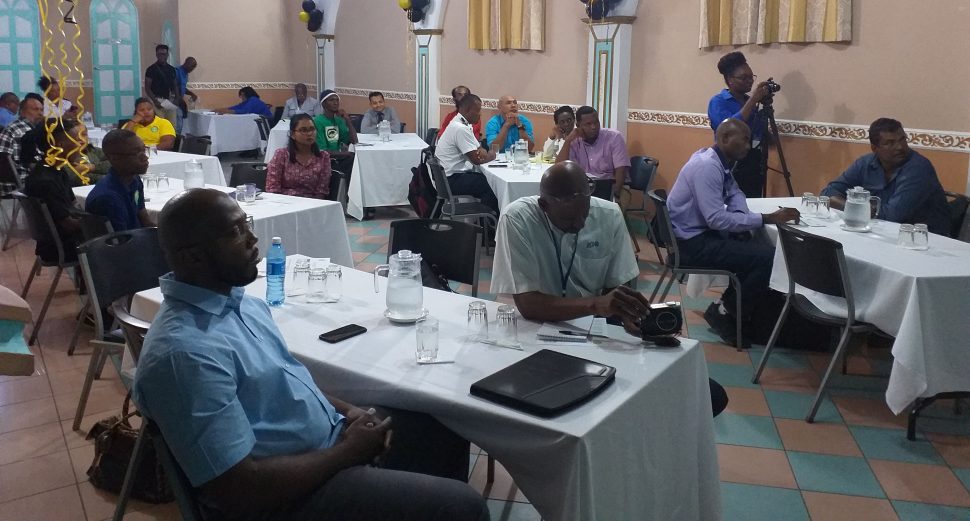With the Carambola Fruit Fly (CFF) prevalent in the hinterland, the head of NAREI has emphasized the importance of its control and eradication to limit the serious threat to farmers.
Chief Executive Officer of the National Agricultural Research and Extension Institute, Dr Oudho Homenauth told a CFF workshop last week that the pest has caused severe economic hardship for farmers.
According to a release from NAREI, the pest, which was first observed in Region Six in 1993, bringing authorities to believe it had entered from Suri-name, has since spread to other parts of the country, and has a particularly high population in regions six, eight and nine. A recent survey by Inter-American Institute for Cooperation on Agriculture (IICA) revealed that the pest is now rooted in the aforementioned regions, and as a result of these findings, NAREI organised a CFF- focused workshop.
Homenauth told the workshop held last Mon-day at the Regency Suites that the control and eradication of the CFF is crucial to the improvement of farmers’ livelihoods, particularly those in the hinterland, and recommended that careful inspection of commodities entering Guyana from Brazil is required.
However, while NAREI and the IICA have collaborated to enhance public awareness of the pest through its CFF programme, utilising radio broadcasts, posters and community outreaches, and though officers as well as community leaders who will be trained to better control the CFF, the release added that Guyana cannot tackle the spread of the pest in isolation owing to its porous borders.
According to the release, Permanent Secretary of the Ministry of Agriculture, Delma Nedd, has charged NAREI to include the CFF programme as a line item in the Institute’s budget.
It said she stated that citrus are among the fresh fruits with the greatest export potential, however, exporting same is a major challenge for the country in view of the need to comply with the Phytosanitary requirements of the importing country. She added that the agriculture sector is somewhat stymied by the limited exportation of non-traditional fruits due to the uncontrolled presence of the CFF.
It was noted that recently the list of fruits that have been restricted from the United States due to the presence of CFF has increased following the publishing of information on a new host range.
According to the NAREI release, farmer Charlton Nurse, whose farm is located in West Watooka, Region 10 is contemplating cutting down his cashew and citrus trees if the CFF is not controlled. For some time his ability to earn from the crops has been impeded by the pest. There are Jackson traps on his farm and he is willing to give the programme a chance, the release added.
The release said that Guyana has signed Memoranda of Understanding (MoU) with Suriname and Brazil outlining areas of collaboration to control the territories’ CFF infestation.
This was related by Wilmot Garnett, Country Representative of IICA, who indicated that the formation of two five-year plans to combat the pest are in the pipeline.
Garnett noted that with the signing of the MoUs, one area that stands to benefit both Guyana and Suriname is the creation of a support structure for Suriname to implement an effective CFF programme.






